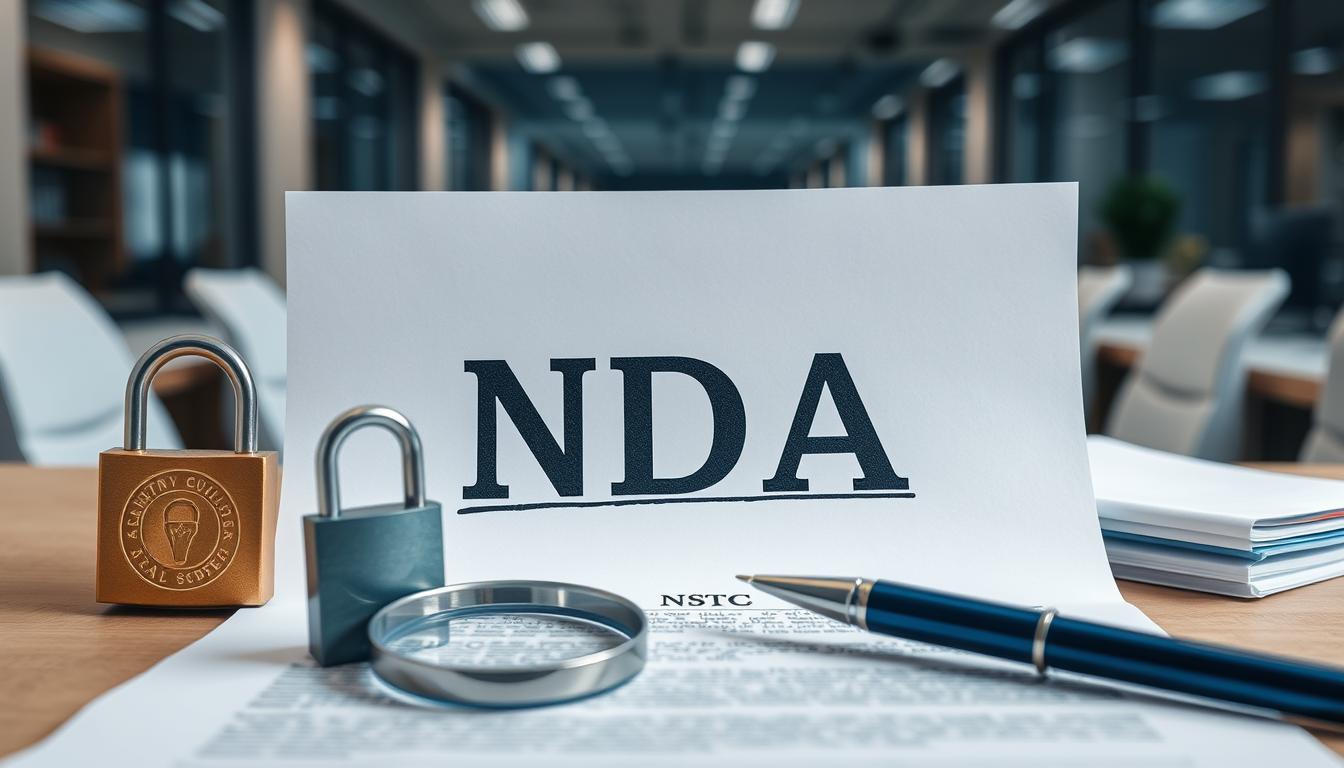Romania’s Criminal Code: Penalties for Illicit Drug Offenses and Trafficking
Romania’s Criminal Code: Penalties for Illicit Drug Offenses and Trafficking
Ever wondered how Romania fights its drug problem?
The Romanian Criminal Code has strict rules for drug crimes.
It aims to stop the spread of illegal drugs, from small amounts to big trafficking cases.
Romania’s drug laws cover all bases, from personal use to big trafficking.
The penalties are tough to scare off both users and sellers.
It’s key to know these laws if you live in or visit Romania.
The Romanian criminal code lists drug crimes and their punishments.
These can be fines or long prison times, based on the crime’s severity.
Drug trafficking, for example, gets the toughest penalties.
Police in Romania take drug crimes very seriously.
The laws are strict, with harsh penalties for these crimes.
Each drug crime, like possession, distribution, or making drugs, has its own punishment.
Key Takeaways
- Romania’s drug laws are outlined in Law No. 143 of 26 July 2000;
- Penalties for drug offences range from fines to long-term imprisonment;
- Drug trafficking carries some of the most severe punishments;
- The law distinguishes between high-risk and risk drugs;
- Penalties vary based on the type of drug and nature of the offense.
Overview of Romania’s Drug Laws
Romania’s drug laws are key to controlling substances.
The country’s drug policy aims to tackle drug use and trafficking.
Law No. 143 of 26 July 2000 is the main law for drug offenses in Romania.
Law No. 143 of 26 July 2000
This law sets the rules for drug crimes in Romania.
It lists controlled substances and their penalties.
It also has different rules for high-risk and risk drugs.
Substances Subject to National Control
Romania’s laws cover many substances, including:
- Heroin;
- Cannabis (herbal and resin);
- Cocaine;
- Amphetamines;
- MDMA.
Definition of High-Risk and Risk Drugs
The laws in Romania divide drugs into two groups:
| Category | Description | Examples |
|---|---|---|
| High-risk drugs | Listed in tables I and II of the law | Heroin, Cocaine |
| Risk drugs | Listed in table III of the law | Cannabis, MDMA |
This system helps decide the penalties for drug crimes. It shows Romania’s effort to control substances effectively.
Drug Possession Penalties in Romania
In Romania, getting caught with illegal drugs can lead to serious penalties.
If you have drugs for personal use, you could face up to 2 years in jail.
The punishment doesn’t change, no matter what drug you have.
Law enforcement in Romania takes drug crimes very seriously.
If you’ve been caught before, the punishment gets even tougher.
Sentences can double if you commit a crime within five years of your first offense.
But, the Romanian justice system might offer a break.
Instead of jail, you could get a fine or community service.
This is more likely if you’re a first-time offender or have a small amount of drugs.
Still, don’t think that drug possession is ignored in Romania.
| Offense | Penalty |
|---|---|
| Personal Use Possession | 3 months – 2 years imprisonment or fine |
| Possession with Intent to Distribute | 2 – 7 years imprisonment |
| Repeat Offense (within 5 years) | Sentence may double |
If you’re facing drug charges in Romania, knowing your rights is key.
A conviction can affect your life in many ways.
So, it’s important to get legal advice.
Trafficking and Distribution of Illicit Drugs
Romania struggles with drug trafficking and distribution.
Its location makes it a key spot for illegal drugs moving between Europe.
This has led to strict laws for drug-related crimes in Romania.
Penalties for Risk Drugs
In Romania, dealing with risk drugs is serious.
If caught, you could get 3 to 15 years in jail.
The courts might also take away some rights.
These rules aim to stop drug distribution in Romania.
Penalties for High-Risk Drugs
High-risk drugs have even tougher penalties in Romania.
Trafficking or distributing them can mean 10 to 20 years in prison.
This shows the government’s strong stance against drug trafficking, especially for dangerous substances.
Aggravating Circumstances
Some factors can make drug sentences worse in Romania.
These include using minors in drug crimes, mixing drugs with other substances, and crimes by medical or public officials.
These cases show how serious drug crimes are and their effect on society.
| Drug Type | Prison Sentence | Additional Penalties |
|---|---|---|
| Risk Drugs | 3-15 years | Prohibition of certain rights |
| High-Risk Drugs | 10-20 years | Prohibition of certain rights |
Drug Offences Romania: Cultivation and Manufacturing
Romania’s drug laws are strict against illegal drug making.
The penalties for growing or making drugs are very harsh.
This shows Romania’s strong fight against drug crimes.
For drugs that are risky, people caught can get 3 to 15 years in jail.
Drugs that are even more dangerous can lead to 10 to 20 years in prison.
These crimes also mean losing some rights.
Romania is a key spot for drug smuggling because of its location.
It’s on the Balkan Route, making it a hotspot for drug trafficking.
But, fighting drug smuggling is tough because only a few lorries are checked at borders.
Recently, big drug busts have shown how big the problem is:
- 1.5 tons of hashish and 751 kg of Captagon pills found in Constanta Port;
- Estimated value of EUR 80 million;
- Biggest drug seizure in Romanian history.
These discoveries show the fight against illegal drug making is ongoing.
Romanian authorities team up with the US Drug Enforcement Administration to fight drug trafficking and making.
Importation and Exportation of Illicit Substances
Romania struggles with drug import and export issues.
It’s a key transit point for drug smuggling, especially along the Balkan Route.
This route carries heroin from Afghanistan to Western and Central Europe.
The Constanta port is a major hub for drug trafficking.
It uses Black Sea maritime routes.
Romania’s northern route also helps smuggle heroin from Iran and Turkey to Europe.
Penalties for Risk Drugs
Importing or exporting risk drugs without permission in Romania is very serious.
If you’re caught, you could get 10 to 20 years in prison.
Penalties for High-Risk Drugs
Smuggling high-risk drugs in Romania is even more serious.
Unauthorized trade can lead to 15 to 25 years in prison.
Both crimes also limit your rights.
| Drug Category | Prison Sentence | Additional Penalties |
|---|---|---|
| Risk Drugs | 10-20 years | Rights restrictions |
| High-Risk Drugs | 15-25 years | Rights restrictions |
Law enforcement finds it hard to catch illegal drug shipments.
Only one in 50 lorries is checked at border crossings in South-Eastern Europe.
This shows the big challenge in fighting drug smuggling in Romania and the area.
Prescription Drug Offenses
Romania is strict about prescription drug offenses.
They aim to stop drug abuse and control controlled substances.
The laws target both doctors and people involved in illegal prescription drug activities.
Doctors can face big penalties for giving out high-risk drugs without a good reason.
This can lead to 1 to 5 years in jail.
The same goes for those who get or give out these drugs with fake or unnecessary prescriptions.
Drug abuse in Romania isn’t just about illegal drugs.
It also includes misusing prescription meds.
In 2016, 5.8% of the population used cannabis at some point in their lives.
This shows the need for strict rules on all addictive substances.
Controlled substances in Romania are under tight rules.
This includes both illegal drugs and some prescription meds with a high risk of abuse.
The goal is to stop these substances from being used illegally instead of for medical reasons.
- Deliberately prescribing high-risk drugs without medical need: 1-5 years imprisonment;
- Dispensing or obtaining high-risk drugs with fake prescriptions: 1-5 years imprisonment;
- Possession of small quantities for personal use: Administrative fine or short-term imprisonment.
These tough rules show Romania’s dedication to fighting prescription drug abuse.
They want to make sure controlled substances are used right in healthcare.
Controlled Delivery and Undercover Operations
Romania fights drug trafficking with smart tactics.
Controlled delivery and undercover work are key.
They help catch drug criminals and break up their networks.
Controlled Delivery in Romania
Controlled delivery in Romania lets drug shipments pass through.
This helps track the supply chain.
Recently, Eurojust helped seize 1,500 kg of heroin across Europe using this method.
Undercover Investigators
Undercover drug operations in Romania are also crucial.
Police officers pretend to be someone else to gather evidence.
This lets them get close to drug groups and gather important info.
| Method | Duration | Authorization |
|---|---|---|
| Electronic Surveillance | Up to 30 days | Judge approval |
| Wiretapping | Up to 48 hours | Prosecutor order |
| Computer Data Access | Varies | Prosecutorial order |
Romania uses many special ways to fight drugs.
These include wiretapping, computer access, and video surveillance.
These methods can last up to 30 days.
After, prosecutors must tell the people involved within 10 days.
Penalties for Drug-Related Organized Crime
Romania is very strict on drug-related organized crime.
The Romanian Criminal Code has tough penalties for drug crimes done by groups.
If you’re caught in a drug crime in Romania with others, you’ll face serious consequences.
A 2017 study looked at drug trafficking laws in 26 European countries.
It found big differences in penalties.
Romania is on the stricter side for organized drug crimes.
For serious drug crimes done by groups of three or more, the penalties are:
- 15 to 25 years imprisonment;
- Possible life sentence.
If drug-related organized crime leads to death, the penalties get even tougher:
- Life imprisonment;
- 15 to 25 years imprisonment.
These harsh sentences are meant to stop people from getting involved in drug crime in Romania.
The law knows that group drug crimes are more dangerous.
By giving long prison terms, authorities want to break up criminal groups and cut down on drug crimes.
Drug Precursors and Equipment Offenses
Romania is strict about drug precursors and equipment offenses.
Law No. 300 of 17 May 2002 sets the rules for these substances.
It controls substances that could be used in drug making but allows them for legal uses.
Penalties for Precursor-Related Crimes
Penalties for drug precursor crimes in Romania are harsh.
If you’re caught with drug precursors or equipment for illegal drug making, you could face 3 to 10 years in prison.
The law groups precursors into three levels based on how risky they are and how easily they can be replaced in drug making.
Confiscation of Drugs and Related Assets
Asset confiscation is a big part of fighting drug crimes in Romania.
The law says drugs and related assets must be seized.
If they can’t be found, you’ll have to pay their value in cash.
This helps cut off the money that drives drug trafficking.
| Precursor Schedule | Authorization Required | Issuing Authority |
|---|---|---|
| Schedule I and II | Yes | Ministry of Health and Family |
| Schedule III | Functioning Authorization | Ministry of Industry and Resources |
| Export/Import (All Schedules) | Yes | Specific Procedures |
To fight drug equipment offenses in Romania, there are strict rules.
These rules cover how precursors are stored, distributed, and labeled.
Operators must keep records of precursor movements for at least four years.
These steps help stop legal chemicals from being used in illegal drug making.
Conclusion
Romanian drug laws have changed a lot since 1989.
They now deal with many issues, from personal use to organized crime.
It’s important to focus on preventing drug use among young people.
Penalties for substance abuse in Romania are strict.
The Criminal Code lists many drug-related crimes.
These laws aim to reduce criminal behavior linked to drug use.
Romania’s drug crime policies match global efforts.
The 2011 Law no. 194 targets new psychoactive substances.
This shows Romania’s dedication to updating its drug laws.
The country tries to balance strict rules with help for those with addiction.
FAQ
What is the primary legislation governing drug offenses in Romania?
Law No. 143 of 26 July 2000 is the main law for drug offenses in Romania.
It lists controlled substances and divides them into high-risk and risk drugs.
What are the penalties for unlawful possession of drugs for personal use in Romania?
Having drugs for personal use without permission can lead to 2 to 5 years in jail.
The law doesn’t change penalties based on the drug type or amount.
How are trafficking and distribution of drugs penalized in Romania?
Selling or giving out drugs can get you 3 to 15 years in jail and some rights taken away.
For more dangerous drugs, the penalty goes up to 10 to 20 years.
Harsher penalties apply if minors are involved or if you’re a doctor or official.
What are the penalties for cultivation, production, and manufacturing of drugs in Romania?
Making drugs without permission can lead to jail time.
For risk drugs, it’s 3 to 15 years.
For dangerous drugs, it’s 10 to 20 years.
You’ll also lose some rights.
What are the penalties for importing or exporting drugs in Romania?
Bringing in or out risk drugs without permission is a serious crime.
It can get you 10 to 20 years in jail. For dangerous drugs, it’s 15 to 25 years.
You’ll also lose some rights.
How are prescription drug offenses penalized in Romania?
Doctors can face 1 to 5 years in jail for giving out dangerous drugs when not needed.
The same goes for getting or giving out these drugs based on false prescriptions.
What is controlled delivery, and what is the role of undercover investigators in drug enforcement in Romania?
Controlled delivery is a way to catch drug crimes by letting drugs pass through.
Undercover officers pretend to be someone else to gather evidence on drug crimes.
How are drug-related organized crime activities penalized in Romania?
Being part of a drug crime group is punished more severely.
If you’re in a group of three or more, you could face life in jail or 15 to 25 years.
If someone dies because of your actions, you could get life or 15 to 25 years.
What are the penalties for offenses related to drug precursors and equipment in Romania?
Making, bringing in, or having drug-making tools or materials can get you 3 to 10 years in jail.
The law says you must give up any drugs or money you made from them.
What are the main drug-related offences in Romania’s Criminal Code?
The Romanian Criminal Code outlines several drug-related offences.
The primary offenses include drug trafficking, possession of drugs, drug use, and possession of drugs for personal use.
The code also covers offenses related to the cultivation, production, and distribution of illicit drugs.
These offences are considered serious crimes in Romania, and the penalties can be severe, depending on the nature and scale of the offense.
What are the penalties for drug trafficking in Romania?
Drug trafficking is considered one of the most serious drug-related offences in Romania.
The penalties for this offense can be severe, typically ranging from 2 to 7 years in prison.
However, in cases involving large quantities of drugs, high-risk drugs, or organized crime, the prison sentence can be significantly longer, potentially up to 15 years or more.
The exact penalty depends on various factors, including the type of drug, quantity, and the offender’s role in the trafficking operation.
How does Romanian law treat possession of drugs for personal use?
Possession of drugs for personal use is punishable under Romanian law, but the penalties are generally less severe than those for trafficking.
Typically, possession for personal use can result in a prison sentence ranging from months to 2 years or a fine.













